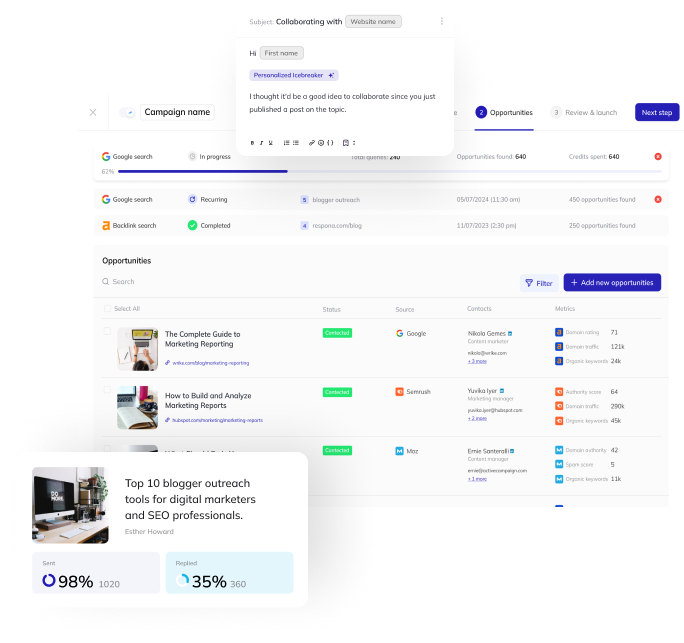Link Schemes
What are Link Schemes?
A “link scheme” is any scheme used to artificially inflate the number of links pointing to a website with the goal of improving its SERP rankings.
This can be done by buying links, participating in link exchanges, or any other method that increases the number of links without adding value. Link schemes are considered to be a violation of Google’s Webmaster Guidelines, and can result in a penalty.
Google has released countless algorithm updates to combat link schemes, such as Penguin.
Link schemes such as directories and straight-up link exchanges used to be the go-to methods of acquiring backlinks to your website, and has resulted in many spammy websites that offer little to no value to the actual user showing up high in search results, while pages that actually deserved those spots (and didn’t employ spammy linking tactics) were obscured by the wasteland that is Google’s page two.
In 2022, link schemes are no longer a viable SEO tactic as the algorithm can easily pick up and de-value these links, meaning that your rankings will not be positively affected.
Are Link Schemes Harmful?
Yes, for two reasons.
The first one is that they hurt your user experience.
Let’s say you were able to sneakily buy a link to one of your product pages. Your link’s anchor text includes a relevant keyword, for example, “link building”.
However, the surrounding content makes it seem like once a user follows your link, they will be greeted by an informational page, like a link building guide rather than a product page trying to sell them your link building software.
The second reason is that link schemes no longer work in your favor.
If you acquire links from low-quality sites (such as those that require an “editorial fee” to add your link or ones that do reciprocal exchanges), Google’s algorithm will spot it almost immediately and disable it from contributing to your rankings.
This means that by participating in link exchanges, the best-case scenario is that you will simply waste your time or even money.
That is, if you only participate in link schemes on a small to moderate scale.
But shady link building practices can actually hurt your SEO as well, preventing your pages from showing up on search engine results pages altogether.
Unnatural linking patterns (such as hundreds of similar links appearing within a short timespan or excessive reciprocal linking) can and will cause your website to become subject to a manual review by one of Google’s staff.
And, depending on the result of that review, you may even receive a Google penalty, preventing your pages from appearing in search results altogether.
Link Scheme Types
So, in 2022, you should absolutely do your best to avoid participating in any kind of link schemes.
Now, let’s take a look at the exact situations that Google considers to be “link schemes”.
Buying or selling links
Purchase or sale of backlinks is strictly prohibited by Google’s Webmaster Guidelines.
So, whenever somebody asks you an “editorial fee” to link to you, you should always decline that offer.
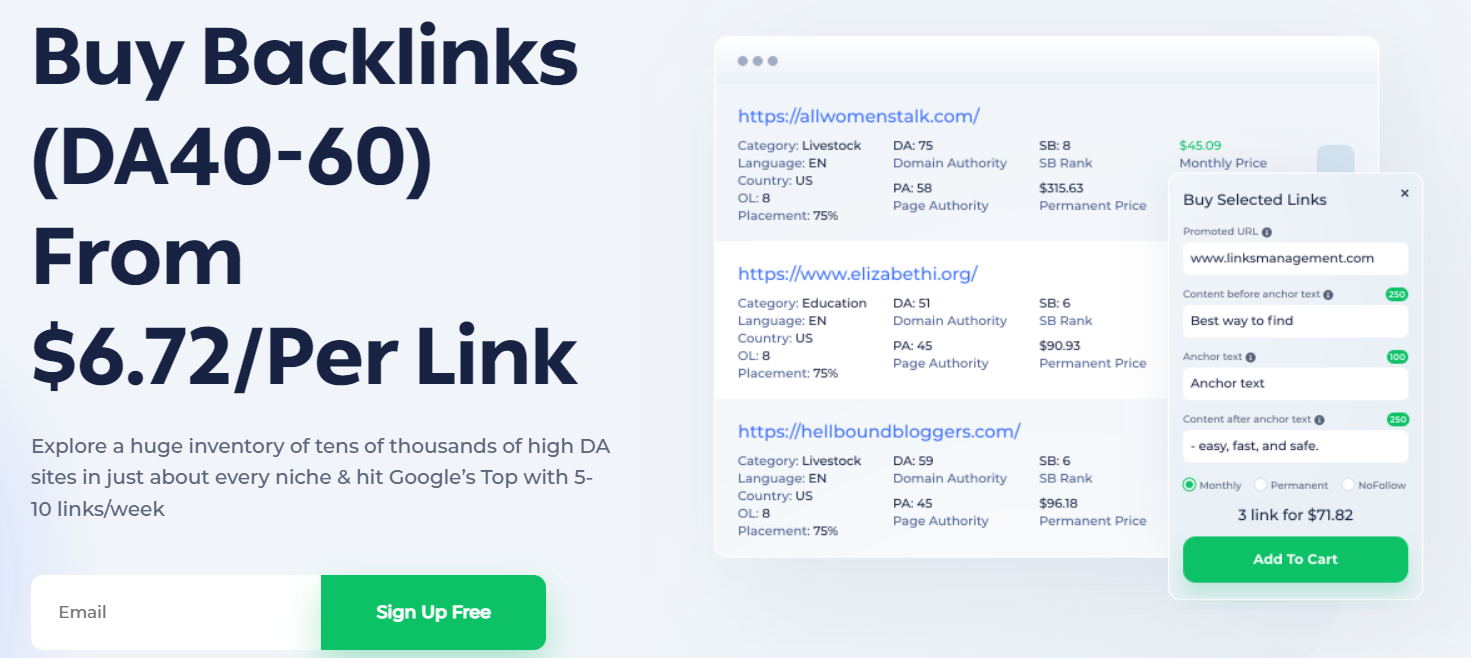
However, there are certain exceptions to this rule.
Sponsorships, product reviews, and other similar paid promotions are not against Google’s guidelines, as long as they are properly labeled as such.
Any links that have been acquired as part of a paid promotion need to have the “rel=sponsored” attribute added to their code.
The “sponsored” tag acts similarly to “nofollow”, meaning that little to zero PageRank will be passed on through such a link.
Any purchased links that don’t have the “sponsored” tag are considered to be in violation of Google’s guidelines.
Excessive link exchanges
Link exchanges, or reciprocal links are two-way exchanges between two websites with the goal of boosting the SERP visibility of both.
Despite being against Google’s guidelines, link exchanges are still a surprisingly common occurrence in the world of link building.
But, the fact that other people might be doing it doesn’t mean that you should be doing it too.
Reciprocal links are easily picked up by Google’s algorithm.
If Google indexes a link from some site to yours, and within a few hours or days, it sees that you have inserted a link back to them – it’s a tell-tale sign of a reciprocal link exchange.
Both of these links will be devalued by the algorithm and won’t contribute to each of your website’s rankings at all.
Excessive link exchanges can also get your website penalized, so you should avoid direct exchanges at all costs.
Large-scale article marketing or guest posting campaigns with keyword-rich anchor text links
Guest posting on its own is a perfectly viable link building strategy, even after countless algorithm updates.
However, posting dozens or even hundreds of guest posts with the same links with exact match keywords in the anchor texts can and will raise Google’s eyebrow.
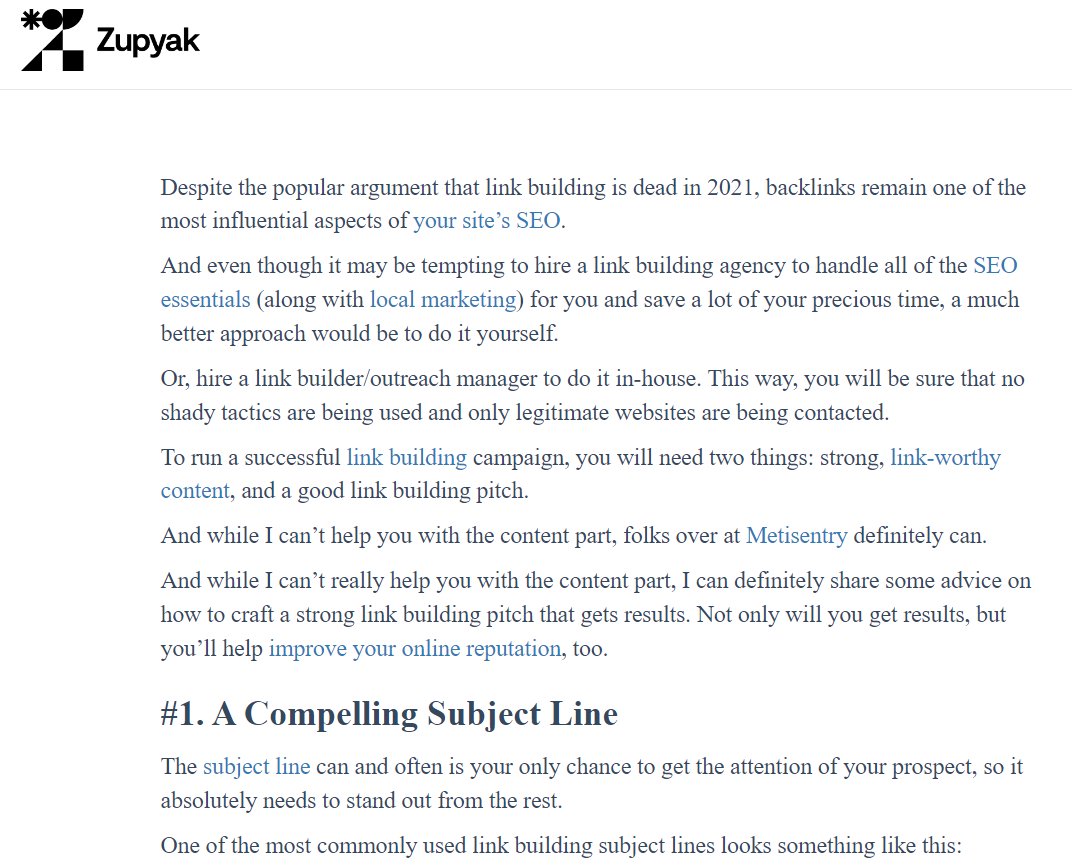
Automated link building
Automated link building is the process of using software to generate links to a website automatically.
This can be done through a number of methods, such as submitting articles to article directories or creating blog comments with links back to the website.
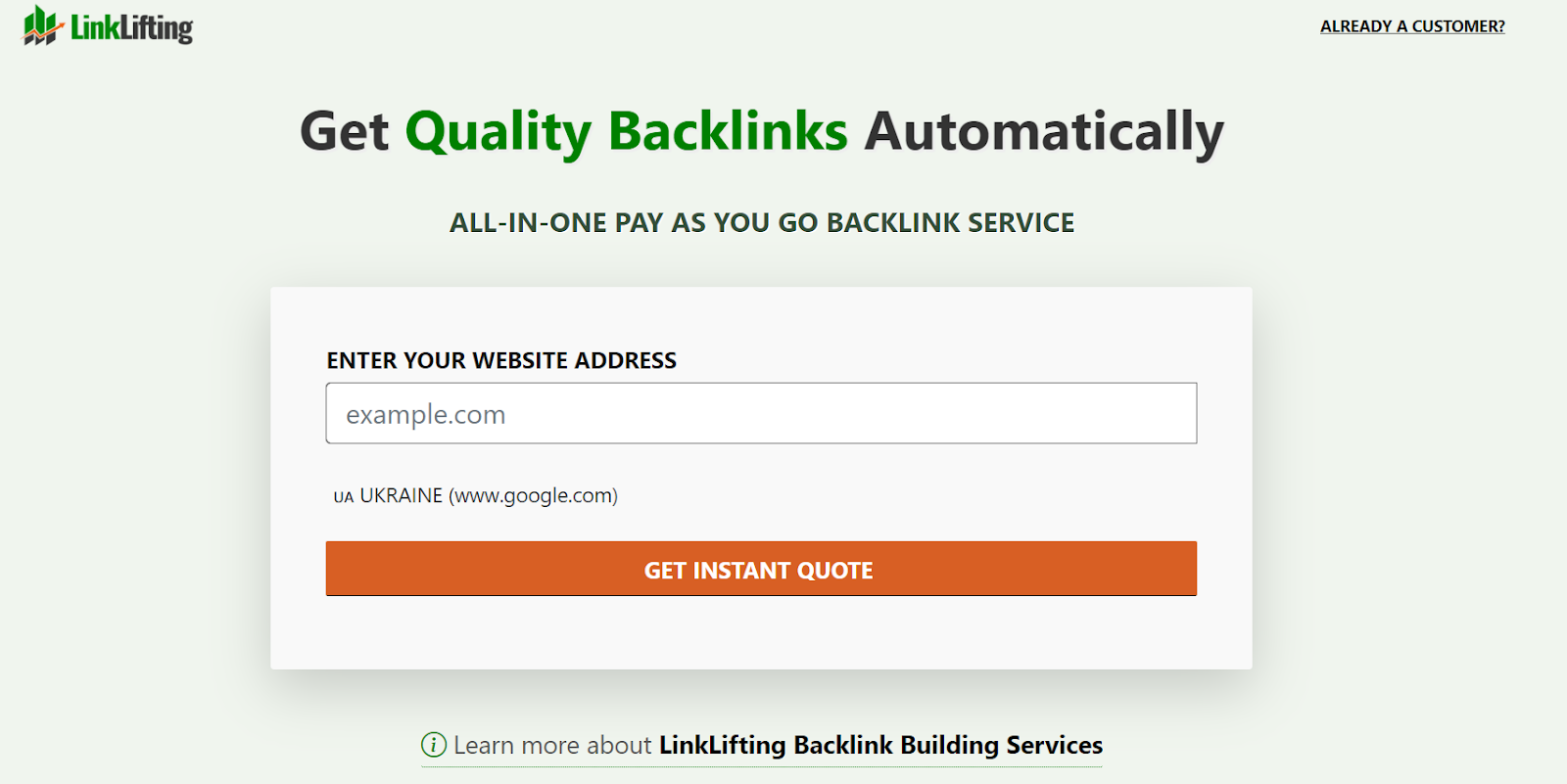
Such link automation can be performed through the usage of scripts and bots.
They also usually leave a huge footprint in the form of hundreds of links rapidly placed in the comment sections of various websites, making it extremely easy for Google to spot.
Requiring a link as part of a Terms of Service, contract, or similar arrangement
Requiring a “dofollow” link from anyone is against Google’s terms, period.
The only situation where a dofollow link is acceptable is if the website owners deemed it appropriate and made a conscious decision to link to your content because it is of high quality and provides actual value to the user.
Advertisements that pass PageRank
Once again, any links that were acquired as part of a paid advertisement need to be marked with the “rel=sponsored” tag. Otherwise, they are in violation of Google’s guidelines.
Low-quality directory or bookmark site links
The main reason directories and bookmarking sites are no longer a viable link building strategy is because the search engines have become much better at detecting and devaluing links from these types of sites.
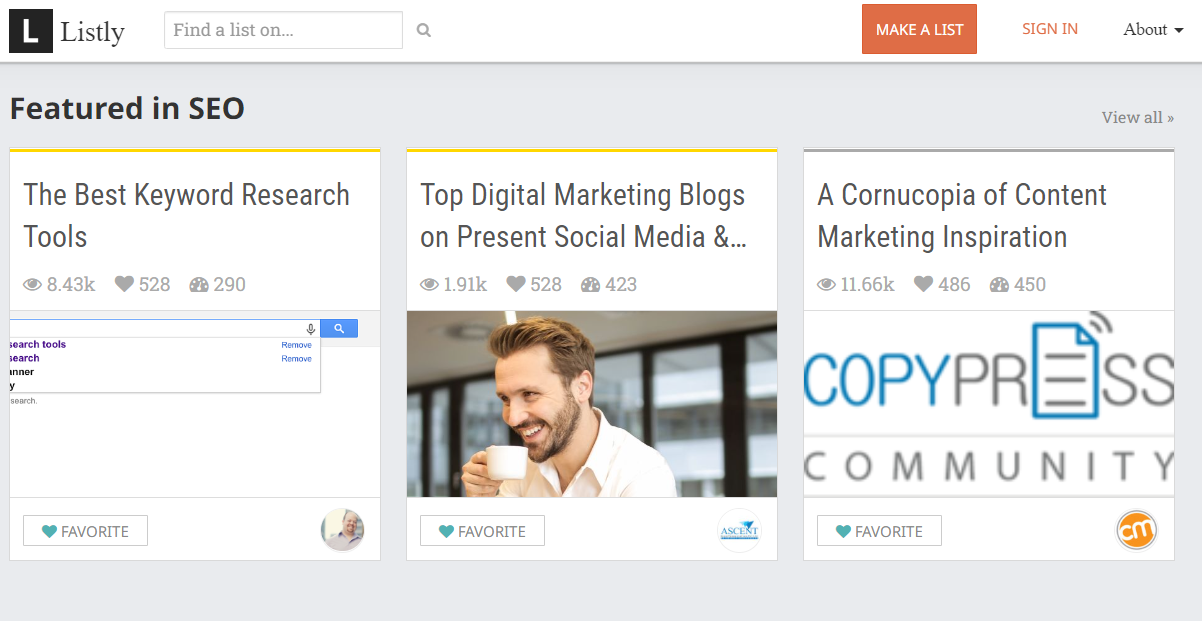
In the past, these sites were often used by spammers to build hundreds or even thousands of low-quality links, which would then boost the ranking of their sites in the search results.
However, Google and other search engines have gotten much better at detecting these types of links, and they now often penalize sites that have a lot of them.
Additionally, directories and bookmarking sites are generally not very high-quality sites themselves. They are often filled with low-quality or even spammy content, and they typically don’t have a lot of users. As a result, links from these types of sites are not as valuable as they used to be.
Widely distributed links in the footers or banners of various sites
Realistically, any legitimate website would only be willing to put its own navigational internal links in its footer.
That or links to any close partner/sister companies.
So, if a webpage has a bunch of random links to unrelated websites in the footer, header, banners, or anywhere on the page, really, it’s considered to be a link scheme.
Additionally, if the site’s footer is stacked with a bunch of links to different product/service pages that are clearly there just in an attempt to rank for as many keywords as possible, that’s considered a link scheme as well.
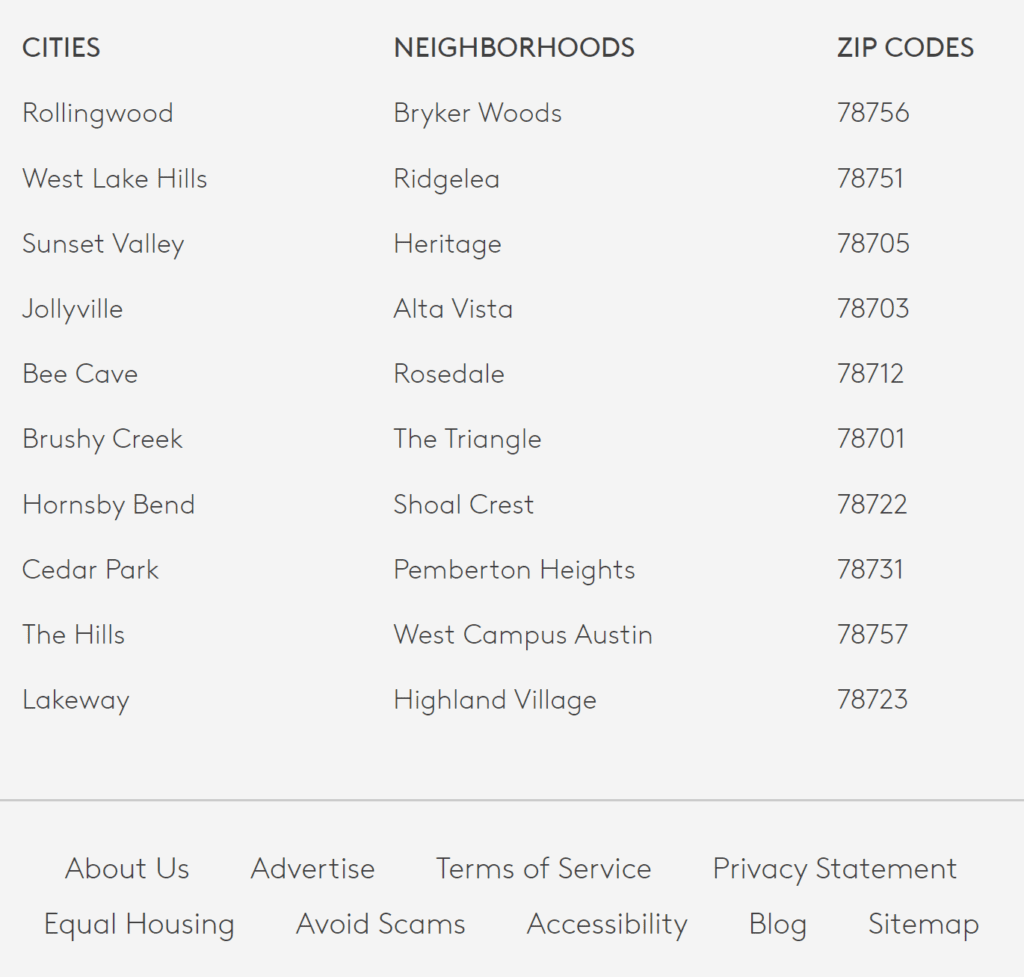
Forum comments with optimized links in the post or signature
Participating in forums/social media discussions is generally a great way to spread your knowledge and earn the trust of your target audience.
But that only applies if your comments are genuinely helpful.

If the sole reason behind your comment is to stuff a link back to your product/service into it, maybe you should reconsider.
This also applies to signatures under your comments – they are generally de-valued as well.
Besides being ignored by search engines, such comments also make you look unprofessional, which is the exact opposite of your desired result.
Link Scheme Example
The following is an example of an email that we have received from somebody inviting us to participate in their link scheme – more specifically, pay to host a guest post on their site.
Note the low effort that went into writing the email and the long string of CC’d emails – they didn’t even bother to BCC all of the recipients.
We have hidden the other recipients for privacy reasons, but this email was sent to at least nine other people.

How to Avoid Link Schemes?
Now that you know exactly what is classified to be a “link scheme” by Google, it should be pretty easy to spot and avoid them.
Simply:
- Don’t pay for backlinks (or sell them)
- Don’t exchange links directly
- Don’t try and automate your forum/social media comment link building with bots and scripts
- Make sure to mark any links that you have acquired as part of a paid promotion as “rel=sponsored”
- Avoid directory websites altogether
So, what are some ways to build backlinks legitimately?
Let’s dissect Google’s very own John Mueller’s answer to this question.
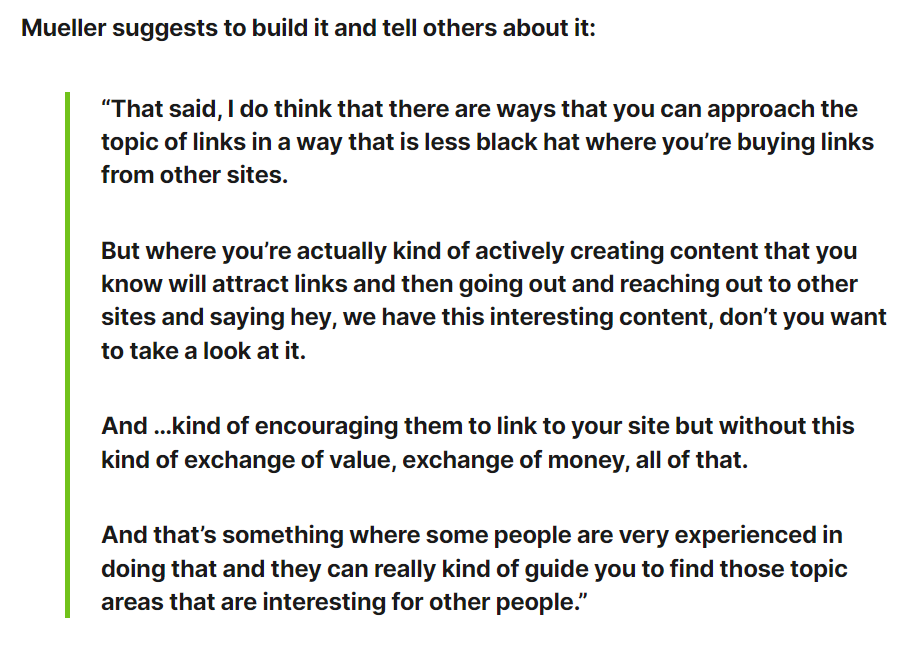
So, as long as you’re producing actually valuable, link-worthy content, it is perfectly acceptable to reach out to other websites to promote it and possibly secure backlinks.
How exactly can you do that?
We already have quite a few articles on the exact strategies to do it, such as:
There are also many other link building strategies out there, but these three are the most popular, and, arguably, the most effective.
Bottom Line
So, a “link scheme” is a manipulative link building practice with the goal of increasing the online visibility of any given page, such as:
- Paid links
- Low-quality directory listings
- Reciprocal exchanges and automated link building
- Over-optimized links in forum comments and under social media posts
- Other irrelevant and low-quality links
The only legitimate way to build backlinks to your site in 2022 is by creating high-quality content, and then reaching out to other webmasters to promote it.
